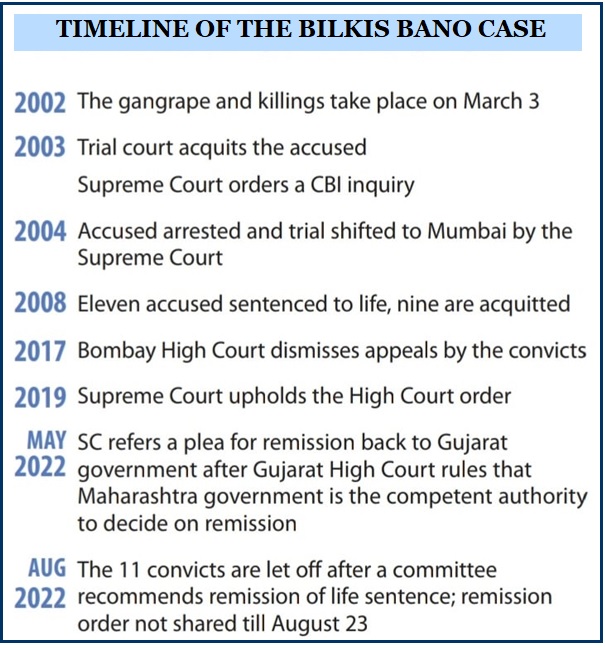900 319 0030
enquiry@shankarias.in
The Supreme Court quashed the order of remission granted by the State of Gujarat in 2022 to 11 men sentenced to life imprisonment for the gangrape of Bilkis Bano and murder of her family during the 2002 Gujarat riots.

Remission means a reduction in sentence imposed on a person convicted of a crime.
Laws available on remission
References